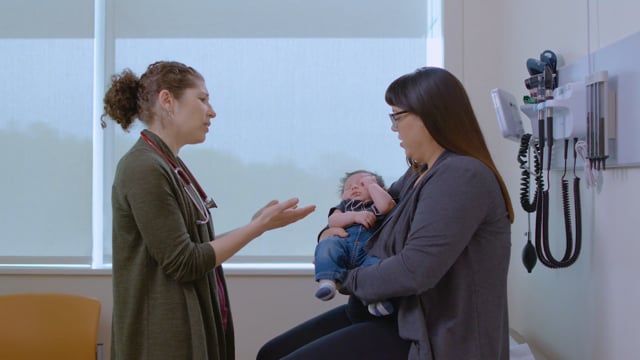How Vaccines Help: Common Questions
Vaccines (also called immunizations) are a safe and proven way to help the body fight off serious conditions. They also help keep your family, friends, and community safe.
Why Are Vaccines Important?
Vaccines have protected millions of kids and adults from dangerous diseases and saved many lives. They help people and communities avoid infections and can even help prevent some types of cancer. Thanks to the widespread use of vaccines in the United States, childhood illnesses that used to be common, like diphtheria (dif-THEER-ee-uh), are rarely seen. And rates of certain cancers, like cervical cancer, have dropped greatly since the HPV vaccine became available.
Some diseases are so rare now that parents may wonder if vaccines for them are still needed. But most diseases that vaccines prevent do still exist in the world (even in the United States) so getting vaccines to protect against those conditions is needed until the diseases are gone worldwide. This is what happened with smallpox, which no longer requires vaccines.

How Vaccines Help
Vaccines keep millions of people healthy each year by preparing the body to fight illness. Learn how vaccines help and get answers to your biggest questions about vaccines.
How Do Vaccines Work?
Vaccines help your body learn how to fight off certain germs. Most vaccines are made from a dead or weakened germ — or parts of it — that causes a certain disease. When you get a vaccine (called vaccination), your body’s immune system sees the germ and starts practicing how to fight it. Your body does this by making special proteins called antibodies, which know how to spot and attack the germ.
These antibodies last a long time in the body. So if the real germ enters your body someday, your immune system is ready to fight it off quickly. This helps keep you from getting the disease the germ can cause. This protection is called immunity. The way vaccines make us immune or resistant to diseases is called immunization.
How Are Vaccines Studied and Improved?
Before a new vaccine is used, it goes through many tests in labs and with volunteers. The American Academy of Pediatrics recommends vaccines that the Food and Drug Administration (FDA) has approved and says should be in the vaccine schedule. Even after this, experts keep checking vaccines to make sure they stay safe. Over time, vaccines are improved to help lower side effects and meet the highest safety standards.
Are There Other Ways to Become Immune?
Besides getting a vaccine, people can also become immune to a disease after they get infected with a germ (sometimes called "natural" immunity). Just like with getting a vaccine, their immune system will spot the germ and make antibodies to fight it. But becoming immune this way can make a person very sick, and — sometimes — even die.
Will the Immune System Be Weaker by Relying on a Vaccine?
Vaccines don’t weaken the immune system. When kids get a vaccine, the body learns how to fight off a germ — just like it would if they got sick from it. But with a vaccine, they don’t have to go through the illness. Getting one vaccine doesn’t stop the body from fighting other germs. In fact, vaccines help the immune system get stronger and ready to protect your child.
How Long Do Childhood Vaccines Last?
The amount of time vaccines last depends on the vaccine:
- Some vaccines may make kids immune for life, like the measles vaccine (two shots) and hepatitis B vaccine (a series of shots).
- Other vaccines last many years, like tetanus vaccine and whooping cough (pertussis) vaccine, but booster shots, or doses to help “boost” protection, are needed to keep children safe from the disease.
- Some vaccines are updated from time to time, like the flu vaccine and COVID-19 vaccine. The viruses that cause flu and COVID-19 change, so the vaccines are updated to protect against the most current kinds of the virus. That’s why people need the flu vaccine each year. Last year's flu vaccine won't protect someone from the flu this year.
When not enough people in the community get vaccines, outbreaks (when more people get sick with a disease than expected in one area) can happen.
Where Can I Learn More About Vaccines?
Read about your child’s vaccines for details about each one that’s recommended. The American Academy of Pediatrics also has more information about vaccines.
And talk with your doctor about which vaccines your child needs. Working together, you can help keep your family healthy.
Other Common Questions
When Does My Child Need Vaccines?
Kids need vaccines at certain ages, often starting from birth. Your doctor can tell you which ones your child needs and when. This handy childhood vaccine schedule can also help guide you.
What Can I Do to Ease My Child's Fear of Shots?
From deep breaths to distraction, there are many ways to help kids feel better about shots. Learn what you can do to make vaccines less stressful.
What’s a Booster Shot?
A booster shot is a dose of vaccine given after a person has had the original vaccine. Immunity from the original vaccine can fade over time, and a booster shot can help the immune system “boost” the protection it provides. Learn which booster shots people get and when they get them.
